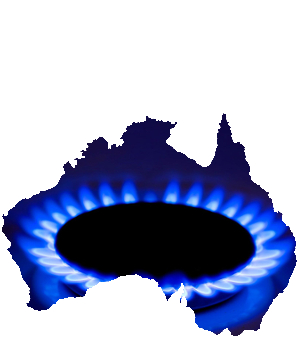Gas dollar flies free but solutions slow to follow
 Australians will pay more for household power and there is little they can do, according to the Grattan Institute’s latest energy report.
Australians will pay more for household power and there is little they can do, according to the Grattan Institute’s latest energy report.
In the new ‘Gas At The Crossroads: Australia’s Hard Choice’ report, Grattan economists said households in Melbourne would be looking at about $300 more on their bills every year, due to the changing gas market.
It warns that as electricity and gas prices in Australia have already jumped 61 per cent and 36 per cent respectively in the last five years, further price jumps will continue to pressure manufacturing, processing and related industries.
“The increases are also likely to price gas-fired power out of the electricity market, except to meet short-term peaks in demand. Last year, gas produced 20 per cent of Australia’s electricity,” Grattan Institute’s energy program director Tony Wood said at the launch of the paper in Melbourne.
Despite Australia’s massive stockpiles and high gas extraction rate, it will soon be paying international prices as exporters keenly ship local gas to richer markets.
The Australian Workers’ Union’s Reserve Our Gas campaign is calling for a portion of Australian gas be reserved for domestic use.
It was a policy undertaken in the United States during that country’s recent energy overhaul, and has been attributed to the growth of many thousands of jobs.
Reserve Our Gas spokesperson Scott McDine has told media outlet Business Insider that the Grattan Institute is not giving Australian consumers and local industry a fair go.
“Here’s a tip for the Grattan Institute: free market rules are only worth playing by if others are playing by them too,” McDine said.
“But there is no such thing as a free global market when it comes to gas. Because every gas-exporting nation, aside from Australia, has some form of gas reservation or national interest test, the global gas price is distorted and pushed extremely high.
“Why should Australia be voluntarily subjecting itself to this distorted global price?”
But Grattan says that despite price increases on the way, the government should not be forced to implement protectionist policies.
“The emerging export industry will deliver overwhelmingly positive economic benefits for Australia,” Mr Wood said.
“Governments are already coming under pressure to protect Australian industry and consumers from the price rises. They should resist it.
“Reserving or subsidising gas for domestic use will add more costs than benefits and do nothing to increase supply. And in the long run, protection harms everyone,” Wood said, saying governments would be better served by removing market barriers to export.







 Print
Print